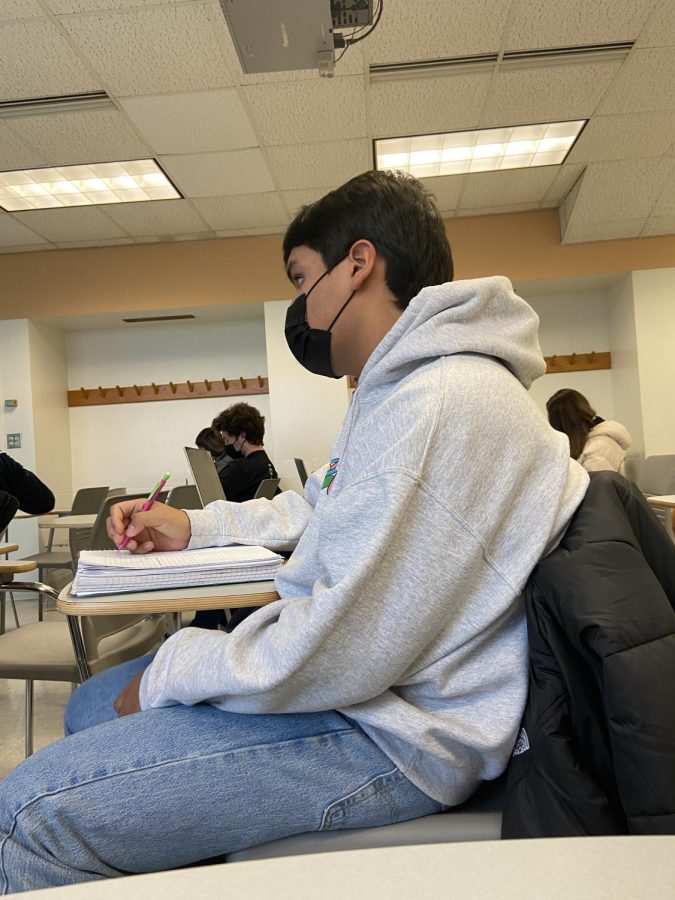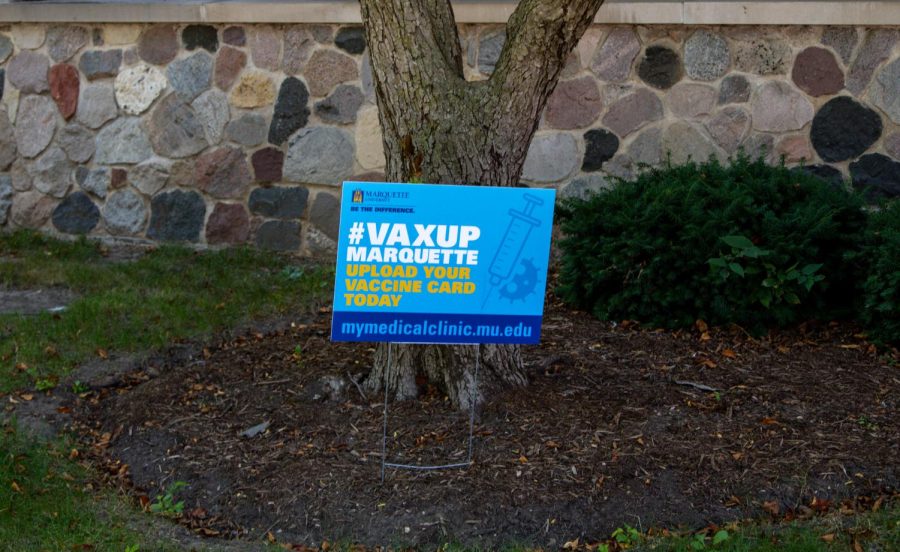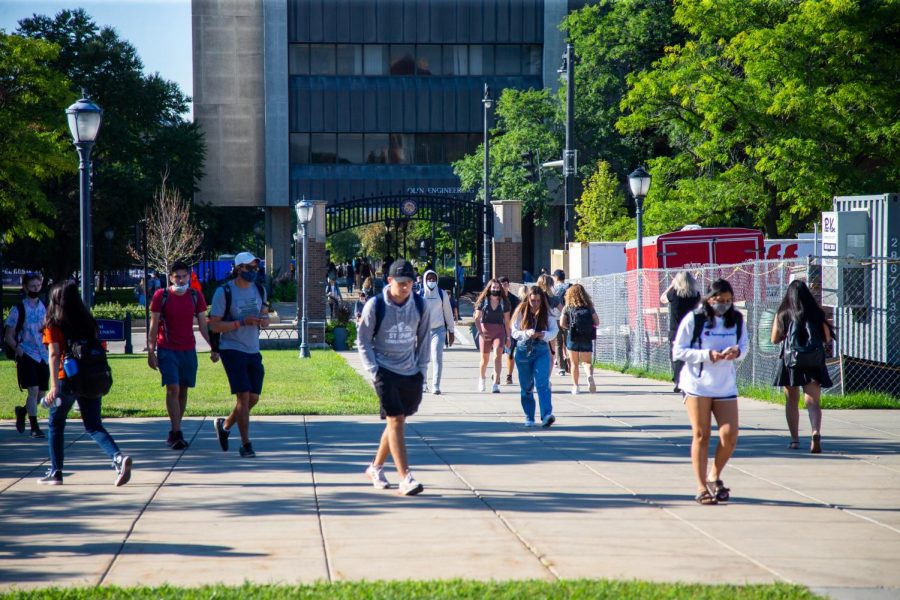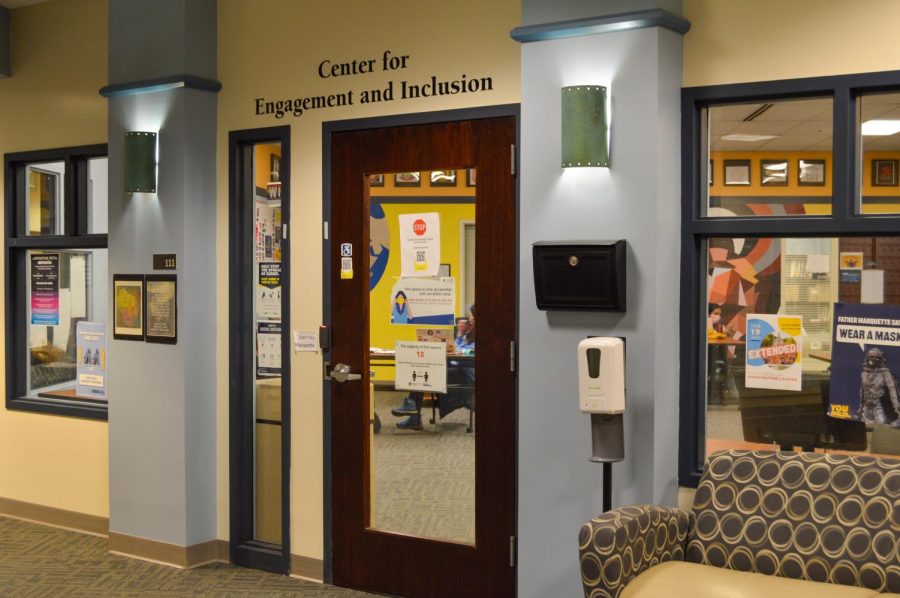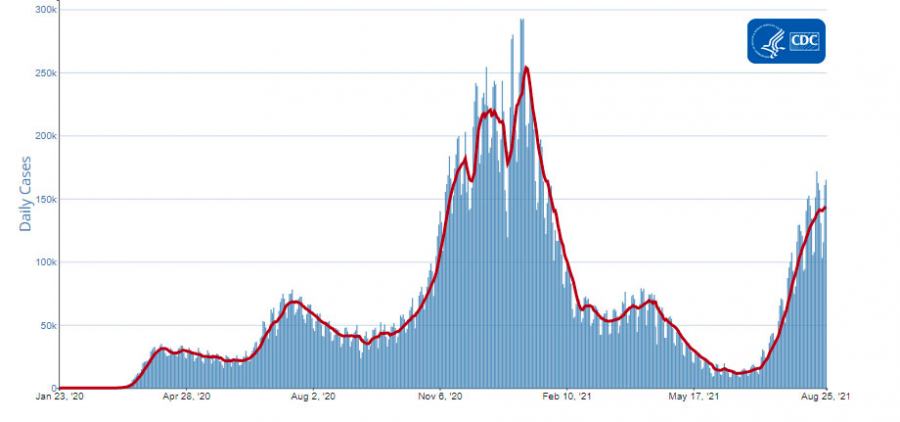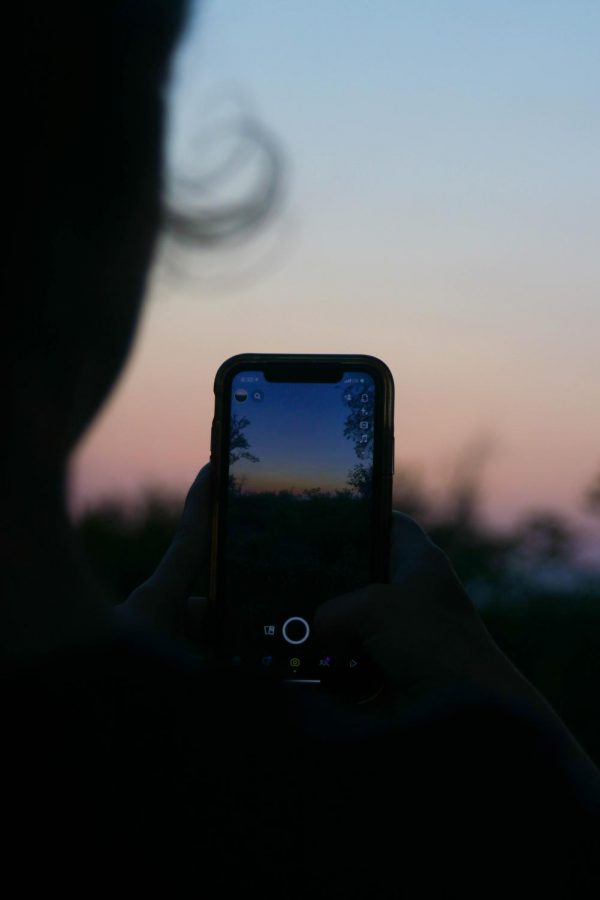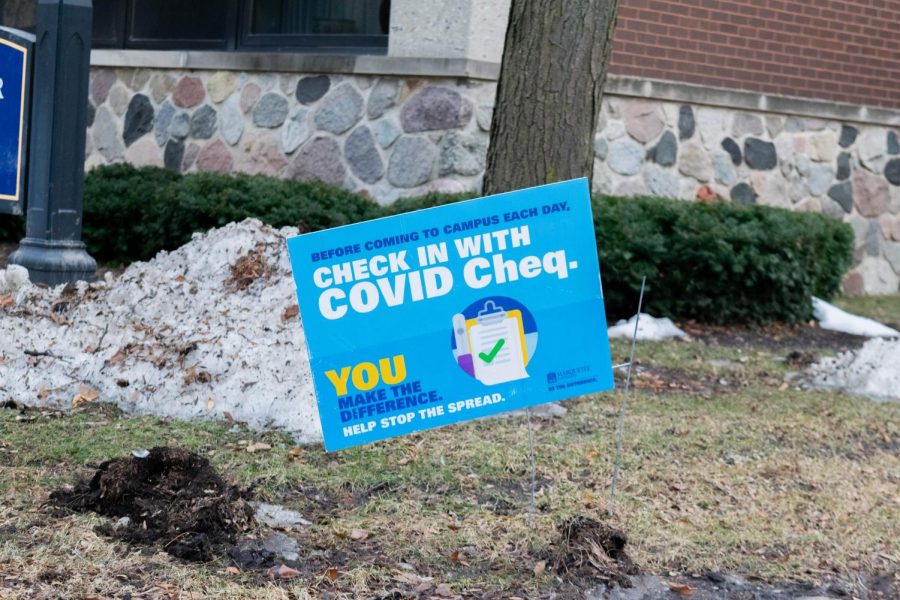While 94% of Marquette University students and 93% of faculty and staff have submitted proof of COVID-19 vaccination, as of Nov. 24, it is necessary that the university continues to be flexible with the future uncertainty of COVID-19.
Although the majority of students have submitted proof of COVID-19 vaccination, the COVID-19 pandemic is still ongoing, and the virus is still spreading. Between Oct. 18 and Nov. 24, there were 79 reported cases of COVID-19 on campus, according to the Marquette University COVID-19 Dashboard.
The university announced Aug. 16 that it would require all individuals to wear face masks in public indoor spaces regardless of vaccination status in order to stop the spread of COVID-19 starting Aug. 17.
However, now that COVID-19 vaccinations are more readily accessible and the majority of the Marquette community has submitted proof of COVID-19 vaccination, many of the safety protocols on campus have been relaxed or removed altogether.
Unfortunately, there is often little to no enforcement of these requirements across campus buildings; sometimes students are seen improperly wearing masks or not wearing masks at all when they’re walking around campus buildings.
Additionally, the university is not requiring social distancing protocols in classrooms and indoor spaces that were put in place last year. In spaces like residence halls, dining halls and classrooms where there is high foot traffic, there are no longer social distancing requirements, despite the risk of spreading COVID-19 being much higher. Additionally, dining halls also no longer provide to-go containers for students like they did last school year, causing a greater possibility of spreading COVID-19.
Not having more socially distanced spaces and stricter face mask enforcement may likely increase the spread of COVID-19 among students. Being more mindful of COVID-19 safety measures on campus is especially important as the World Health Organization labeled the new COVID-19 variant, Omicron, as a “cause for concern” Nov. 29, in addition to four other variants: Alpha, Beta, Gamma and Delta. Although no Omicron variant cases of COVID-19 have been detected in the U.S. yet, there needs to be safety measures in place as it is likely to spread.
Having some reported COVID-19 cases on campus is likely because not all members of the Marquette community have submitted proof of COVID-19 vaccination; but Marquette needs to make sure it is taking necessary action to protect everyone’s health and well-being. This could include improving the enforcement of properly wearing face masks in indoor public spaces, as well as implementing more social distancing spaces.
Another way to respond to the changing COVID-19 pandemic is to improve the availability of on-campus COVID-19 testing.
As of now, the Medical Clinic only offers COVID-19 testing appointments Monday through Thursday between 7:10 am and 11:00 am in the Helfaer Recreation Center, according to the Medical Clinic patient portal.
Providing COVID-19 testing on campus is a necessary resource for students to monitor their health, and the testing time slots offered may not be accessible for all students.
Students with conflicting classes or extracurricular activities may not be able to make the four-hour window. This may leave them to try and find COVID-19 testing elsewhere near campus. However, if students don’t have accessible transportation, they may not be able to get tested for COVID-19 near or off-campus.
The goal should be monitoring COVID-19 cases on campus, which means increasing the availability of testing times.
Marquette should also consider offering COVID-19 booster shots for students.
The U.S. Food and Drug Administration announced on Nov. 19 that it expanded the eligibility of COVID-19 booster shots to people who are 18 years of age and have completed the primary COVID-19 vaccination series for Pfizer or Moderna at least six months ago. Before its recent announcement, the FDA only approved COVID-19 booster shots for individuals who are at least 65 years old, as well as individuals between the ages of 18 and 64 who are at “high risk of severe COVID-19” or “frequent institutional or occupational exposure” to COVID-19.
The Marquette University Medical Clinic currently distributes the primary COVID-19 vaccine series.
The university recently announced that the Marquette University Medical Clinic would not be distributing COVID-19 booster shots. However, it said that those who were interested in getting the booster shot could register through the Wisconsin Department of Health Services to receive it at a nearby health department or pharmacy.
Taking action with the most recent information regarding COVID-19 is necessary to provide the most adequate resources and care for the Marquette community.
Although the Marquette community is adjusting to a “new normal,” it is imperative that the university continues to make decisions regarding COVID-19 safety that will benefit and protect the health of students, faculty and staff.
Editorial topics by the Marquette Wire are decided at weekly meetings between members of the executive board. The editorial is crafted with leadership by the executive opinions editor. The executive board consists of the executive director of the Wire, managing editor of the Marquette Tribune, managing editor of the Marquette Journal, general manager of MUTV, general manager of MUR and ten additional top editors across the organization.

